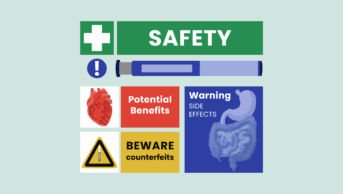
RPS
Four regional medicines optimisation committees (RMOCs) will be set up across England to reduce the duplication of drug evaluation in the NHS, according to a consultation published by NHS England in August 2016.
RMOCs were first outlined by Keith Ridge, chief pharmaceutical officer at NHS England, in a letter to regional medical directors in February 2016. They are being set up in response to concerns that new medicines and new indications for existing medicines that do not go through the National Institute for Health and Care Excellence (NICE) technology appraisals programme end up being evaluated multiple times at a local level across the NHS.
With the formation of four committees covering all geographic areas, NHS England says it aims to cut down on duplications and save resources. The move should also free the time of staff at clinical commissioning group (CCG) and trust level to focus on implementation, it says.
“Whilst it’s important to recognise that CCGs and trusts have clinical and financial duties to deliver, it must be possible to eliminate unnecessary duplication of effort, and instead focus local expertise on optimising outcomes from medicines use,” says Ridge.
“I believe the best way to eliminate duplication of medicines evaluation is to bring those activities to regional level through the establishment of four [RMOCs]. This will ensure any evaluation activity is coordinated, done once only, and shared across the four NHS regions.”
Following a workshop with stakeholders in April 2016, NHS England has published more detailed plans for consultation. The proposals set out the aims of the RMOCs, how they will operate, how membership will be composed, and how work plans will be determined.
The proposals state that the output of RMOCs will be advisory rather than mandatory. NHS England also says the roles of secondary care Drug and Therapeutic Committees (D&TCs), or equivalent, and Area Prescribing Committees (APCs) will need to be repurposed towards the local implementation of RMOC evaluations, and APCs will also feed back to RMOCs about local experience.
“NHS England recognises that the roles of secondary care [D&TCs] or equivalent, and of [APCs], is greater than the evaluation of new medicines and indications. These committees have the greatest knowledge of their local populations, healthcare systems and patient need,” the proposals state.
The Association of the British Pharmaceutical Industry (ABPI) supports the establishment of RMOCs.
“Our sector is ready and willing to play a key role to support the evaluation of those medicines that are not appraised by NICE in a timely, consistent, robust and transparent manner, and in better supporting the use of non-specialised medicines across the NHS governed by the principles of medicines optimisation,” says Paul Catchpole, ABPI’s value and access manager.

Source: Courtesy of the Association of the British Pharmaceutical Industry (ABPI)
Paul Catchpole, value and access manager for the Association of the British Pharmaceutical Industry, say the sector is willing to play a role to support the evaluation of medicines that are not appraised by NICE
He says that RMOCs will improve productivity and reduce inefficiencies within the system. “This has the potential to ensure NHS patients get access to the right medicines at the right time, without being slowed down by unnecessary red tape.”
Mia Rosenblatt, assistant director of policy and campaigns at Breast Cancer Now, says the charity welcomes the proposals. However, she says that it will be a missed opportunity if they do not address the problems that stop patients gaining access to off-patent drugs that have been shown effectiveness in new indications.
“Despite significant clinical evidence for new uses of a number of these drugs, without a patent there is no financial incentive for pharmaceutical companies to seek licences for the new purposes, and so research innovations are just not reaching patients,” she says.
“We need clarity from these proposals on who should take responsibility for making off-patent treatments available. They offer effective and very cheap ways of treating a variety of conditions and we must ensure the NHS is able to make the most of them.”
Breast Cancer Now, which campaigns for better access to off-patent drugs, says it is preparing an official consultation response.
A NICE spokesperson said: “NICE supports initiatives that aim to eliminate duplication of activities across the system to support medicines optimisation. We are engaged with NHS England on the establishment of the committees, including selection of topics, how medicines are assessed and committee membership.”
The consultation is open until 19 September 2016.


